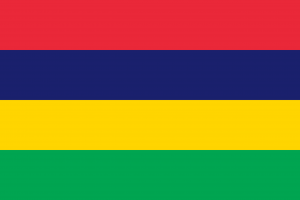Difference between revisions of "Language/Morisyen/Grammar/How-to-Use-Have"
m (Quick edit) |
m (Quick edit) |
||
| Line 56: | Line 56: | ||
|description=In this lesson, we will learn how to use the verb "have" in Morisyen. We will look at the different forms of the verb and how it is used in sentences. We will also look at some examples of how it is used in everyday conversations. | |description=In this lesson, we will learn how to use the verb "have" in Morisyen. We will look at the different forms of the verb and how it is used in sentences. We will also look at some examples of how it is used in everyday conversations. | ||
}} | }} | ||
==Related Lessons== | |||
* [[Language/Morisyen/Grammar/Questions|Questions]] | |||
* [[Language/Morisyen/Grammar/Plurals|Plurals]] | |||
* [[Language/Morisyen/Grammar/Gender|Gender]] | |||
* [[Language/Morisyen/Grammar/Give-your-Opinion|Give your Opinion]] | |||
* [[Language/Morisyen/Grammar/Future-Tense|Future Tense]] | |||
* [[Language/Morisyen/Grammar/Negation|Negation]] | |||
* [[Language/Morisyen/Grammar/How-to-Use-Be|How to Use Be]] | |||
* [[Language/Morisyen/Grammar/Conditional-Mood|Conditional Mood]] | |||
{{Morisyen-Page-Bottom}} | {{Morisyen-Page-Bottom}} | ||
Revision as of 00:31, 2 March 2023
Hi Morisyen learners! 😊
In this lesson, we will learn how to use the verb "have" in Morisyen. We will look at the different forms of the verb and how it is used in sentences. We will also look at some examples of how it is used in everyday conversations.
Introduction
The verb "have" is an important verb in Morisyen. It is used to express possession, ownership, or responsibility. It can also be used to express a state of being or an action that has been completed. In this lesson, we will look at the different forms of the verb and how it is used in sentences.
Forms of the Verb
The verb "have" has two forms in Morisyen: "ave" and "av". The form "ave" is used when the subject of the sentence is singular, and the form "av" is used when the subject of the sentence is plural.
Examples
| Morisyen | Pronunciation | English Translation |
|---|---|---|
| Ave un liv | ah-vay oon leev | I have a book |
| Av de liv | ahv day leev | We have two books |
Usage
The verb "have" is used to express possession, ownership, or responsibility. It can also be used to express a state of being or an action that has been completed.
Examples
| Morisyen | Pronunciation | English Translation |
|---|---|---|
| Ave un zanmi | ah-vay oon zahn-mee | I have a friend |
| Av fini travay | ahv fee-nee trah-vay | We have finished the work |
| Ave responsabilite | ah-vay reh-spohn-sah-bee-lee-tay | I have responsibility |
| Av enn lavi | ahv ayn lah-vee | We have a life |
Dialogue
- Person 1: Ave enn zanmi? (Do you have a friend?)
- Person 2: Wi, ave enn zanmi. (Yes, I have a friend.)
- Person 1: Ki kalite zanmi? (What kind of friend?)
- Person 2: Enn bon zanmi. (A good friend.)
Conclusion
In this lesson, we have looked at how to use the verb "have" in Morisyen. We have seen the different forms of the verb and how it is used in sentences. We have also looked at some examples of how it is used in everyday conversations.
To improve your Morisyen Grammar, you can also use the Polyglot Club website. Find native speakers and ask them any questions!
➡ If you have any questions, please ask them in the comments section below.
➡ Feel free to edit this wiki page if you think it can be improved. 😎
